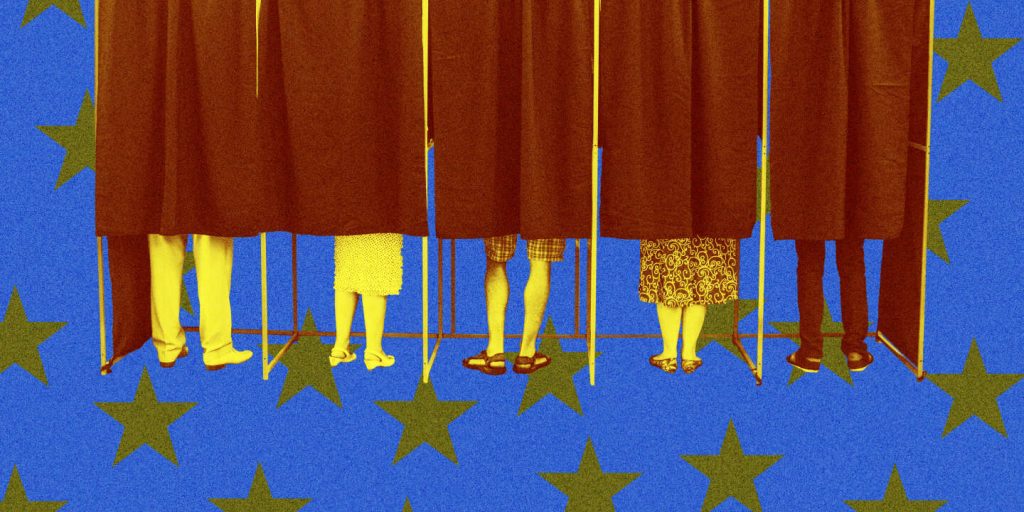On June 9th, it was election day in France and in around twenty countries across Europe to decide on the future configuration of the European Parliament. In these elections, 49.5 million voters were called to the polls in France to choose among the thirty-eight lists that were presented for this election – a record number. Polling stations opened at 8 am and for the most part closed at 6 pm, with some staying open until 8 pm in major cities. In France, where 81 Members of European Parliament (MEPs) will be elected for a five-year term, the voting takes place in a single constituency through proportional representation in one round. Voters cast their votes for lists that they cannot modify in terms of order or composition. For a list to obtain MEPs, it must reach a threshold of 5% of the votes.
The first estimates in France will be broadcast around 8 pm. While some European countries have voted in the days leading up to the election – such as the Netherlands on Thursday, for example – the results will be unveiled in the Twenty-Seven as the evening progresses on Sunday. Various analyses and editorials have been published to delve deeper into the intricacies of the European elections, including profiles of the candidates and the potential rise of the far-right. Additionally, there has been discussion about the fragility of the cordon sanitaire against the far-right in the European Parliament, as well as the political strategies of different parties in light of the election results. The ongoing campaign has also accelerated the process of political realignment between different parties on the left, such as the Socialist Party and La France Insoumise, in anticipation of the 2027 elections.
The atmosphere in France was marked by a high level of political engagement and interest in the election, with a record number of lists competing for seats in the European Parliament. The results of the election will have significant implications for the future direction of the European Union, as the composition of the Parliament will influence key decisions and policies in the coming years. The voting process was characterized by a proportional representation system in one round, with voters selecting lists of candidates without the ability to change their order or composition. To be eligible for MEPs, a list must receive at least 5% of the votes.
The outcome of the election will be closely watched not only in France but also across Europe, as it will shape the political landscape and dynamics within the European Union. The election results will be announced gradually throughout the evening on Sunday, providing insights into the distribution of seats in the European Parliament and the balance of power between different political groups. The campaign leading up to the election has highlighted the increasing importance of European issues and the role of the Parliament in shaping policies that affect member states. Overall, the European elections have sparked a debate on the future of the EU and the direction it will take in the coming years.


